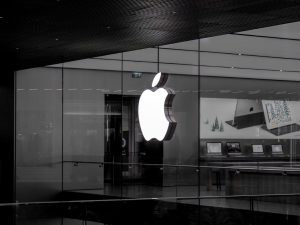Apple Inc. finds itself entangled in a significant legal dispute in the U.K. as a lawsuit, valued at nearly $1 billion, proceeds to trial following a recent court ruling. The lawsuit, brought against Apple by 1,500 U.K.-based developers, alleges unfair commission fees imposed by the tech giant on purchases made through its App Store.
The suit contends that Apple charged developers commission rates of up to 30% on app purchases and other content, thereby exploiting its dominant position in the market for app distribution on iPhones and other Apple devices. Seeking damages, the plaintiffs argue that Apple's commission practices are detrimental to app developers and consumers alike.
Apple's attempts to have the lawsuit dismissed were unsuccessful, with a U.K. court ruling in favor of the plaintiffs on April 13, 2024. The legal proceedings, expected to commence in 2025, mark a significant development in the ongoing debate surrounding Apple's App Store policies.
During a hearing in January 2024, Apple's lawyer argued that developers could only claim damages in the U.K. if they were charged fees on purchases made through the U.K. App Store. However, the judge disagreed, asserting that Apple's commission practices, even on transactions occurring outside the U.K., constituted conduct implemented within the country.
The lawsuit, filed at the Competition Appeal Tribunal, is spearheaded by Sean Ennis, a professor at the Centre for Competition Policy at the University of East Anglia. Ennis, representing 1,566 app developers, criticizes Apple's commission structure as excessive and asserts that it stems from the company's monopoly over app distribution.
Apple's services business, including the App Store, has experienced rapid revenue growth, with quarterly earnings reaching around $20 billion. Despite this success, the company's commission rates have drawn scrutiny from app developers and antitrust regulators globally.
In response to allegations, Apple has defended its commission model, stating that the majority of developers on the App Store are exempt from fees and emphasizing its role in facilitating market access for European developers worldwide.
This legal battle in the U.K. is not an isolated incident for Apple, as similar allegations have surfaced in the EU. Regulatory measures now compel Apple to permit alternative app stores and allow developers to bypass the App Store for transactions conducted outside its ecosystem.
As the lawsuit progresses, it highlights the ongoing tensions between tech giants and developers over app distribution practices, underscoring the importance of regulatory scrutiny in ensuring fair competition and consumer protection.






















